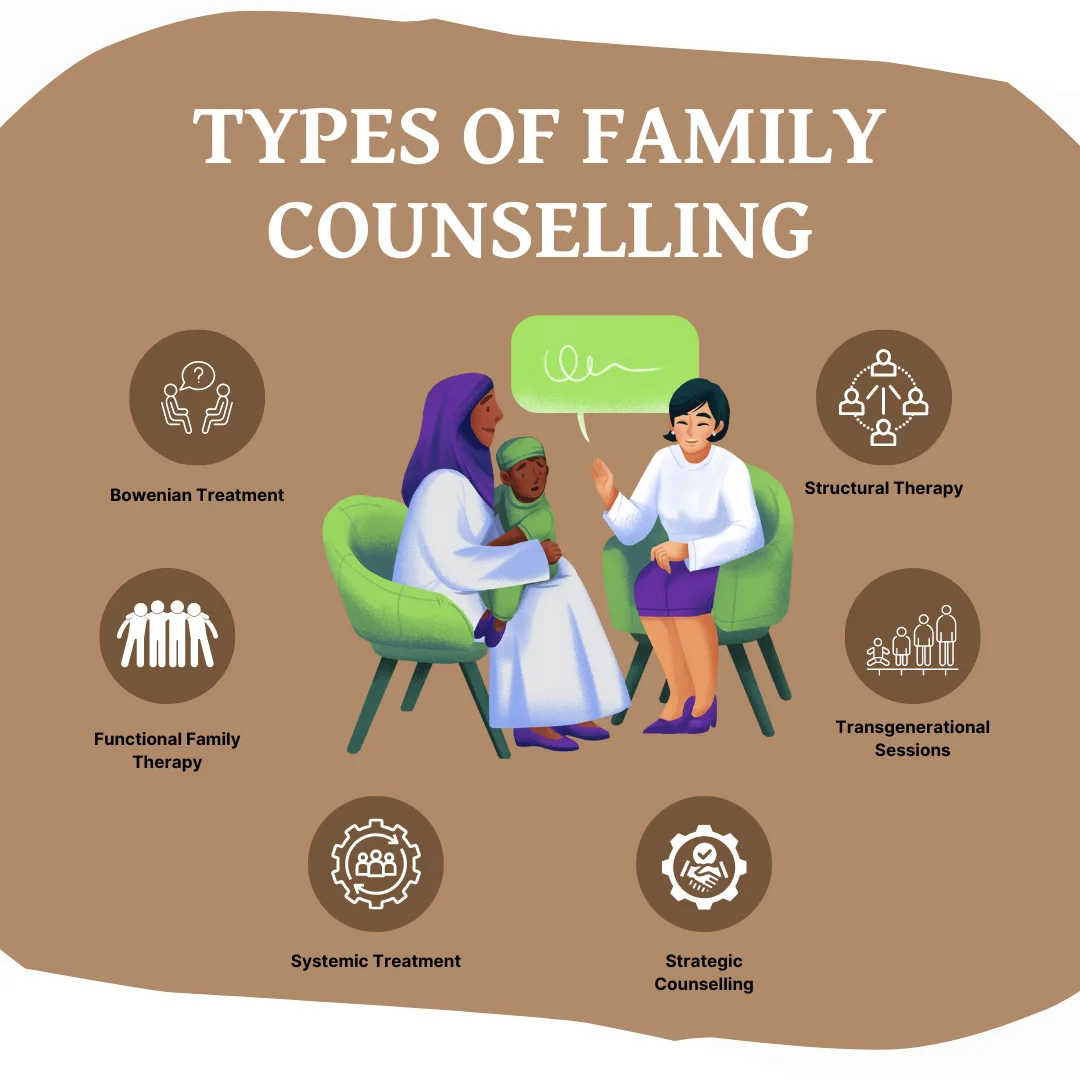relationship therapy sessions: Proven Tips for Managing Conflict
A Comprehensive Overview to the Numerous Kinds of Coaching and Their Impact
Counseling encompasses a range of restorative strategies, each made to fulfill unique mental health needs. From the structured techniques of Cognitive-Behavioral Therapy to the compassionate nature of Person-Centered Therapy, these methods supply distinct pathways to personal growth. Household therapy and Dialectical Behavior modification give extra frameworks for healing, while group counseling promotes area assistance. Recognizing these varied approaches can brighten their profound effect on specific health. What stays to be checked out are the complexities of each method.

Recognizing Cognitive-Behavioral Therapy (CBT)
Although many restorative strategies exist, Cognitive-Behavioral Therapy (CBT) stands apart because of its organized, ambitious nature. This kind of treatment is based upon the premise that thoughts, feelings, and habits are interconnected, and by transforming adverse idea patterns, people can modify their psychological responses and actions. CBT employs various techniques, such as cognitive restructuring, which helps clients determine and test distorted ideas. Behavior activation urges involvement in pleasurable tasks to battle anxiety.
Normally, CBT is a temporary therapy, often long-term between 12 to 20 sessions, making it accessible for those looking for quick outcomes. Its efficiency has actually been well-documented in dealing with stress and anxiety problems, anxiety, and other mental health and wellness problems. The therapist's role is to lead customers with workouts and research tasks, promoting self-awareness and promoting lasting coping approaches. This useful approach encourages people to take control of their mental health, inevitably causing improved life satisfaction.
Discovering Person-Centered Therapy
Person-Centered Therapy, developed by Carl Rogers, uses a contrasting approach to Cognitive-Behavioral Treatment by highlighting the client's subjective experience. This therapeutic version focuses on the individual's viewpoint, fostering a setting of empathy, genuine positive respect, and authenticity. By permitting clients to discover their feelings and ideas without judgment, therapists promote individual growth and self-discovery.
The core tenet of Person-Centered Treatment is the belief that individuals have the fundamental ability for self-healing and personal development. In this setup, the therapist functions as a supportive overview rather than a regulation authority, motivating clients to take cost of their own trip. This approach is especially reliable for those coming to grips with concerns such as low self-confidence, anxiousness, or anxiety, as it empowers them to confront and recognize their feelings. Ultimately, Person-Centered Therapy grows a solid therapeutic alliance, promoting trust fund and openness crucial for significant modification.
The Duty of Family Members Therapy in Healing
Household treatment acts as an important component in the healing process for people and their partnerships. This therapeutic approach focuses on enhancing interaction, resolving conflicts, and fostering deeper connections among family members. By attending to inefficient characteristics, family members treatment urges each participant to share their ideas and sensations in a risk-free atmosphere, advertising understanding and compassion.

The effect of household therapy extends beyond the sessions, as boosted connections can bring about boosted emotional well-being for his comment is here all included. Generally, family members treatment plays a vital duty in recovery by cultivating unity, durability, and common assistance amongst household participants, ultimately guiding them toward a healthier, a lot more meeting life together.
Unloading Dialectical Behavior Modification (DBT)
Building on the structure of restorative strategies that enhance emotional well-being, Dialectical Behavior modification (DBT) provides an organized framework for individuals dealing with intense emotions and behavioral challenges. Created by Marsha Linehan, DBT incorporates cognitive-behavioral strategies with mindfulness methods, aiming to assist customers manage frustrating sensations and enhance interpersonal effectiveness.
The treatment is specifically beneficial for those diagnosed with Borderline Individuality Disorder however is likewise appropriate to a range of various other psychological health issues. relationship therapy. DBT includes individual treatment sessions and skills training groups, concentrating on four essential ability: mindfulness, distress tolerance, feeling policy, and interpersonal performance
The Benefits of Team Therapy Sessions
While private treatment supplies important understandings, group therapy sessions provide unique advantages that can significantly boost the restorative experience. One important benefit is the sense of community that arises among individuals. Individuals usually discover convenience in sharing their experiences with others facing comparable challenges, promoting a supportive atmosphere that reduces sensations of isolation.
Team sessions urge varied perspectives, permitting individuals to learn from each various other's coping approaches and insights. This collective knowledge can bring about enhanced analytical capacities and my explanation a broader understanding of personal problems.
Additionally, group counseling commonly advertises accountability, as members inspire each other to seek their objectives and stick to their commitments. The cost-effectiveness of team therapy makes it an accessible choice for numerous people seeking support. Generally, the joint nature of team therapy sessions can substantially improve the therapeutic journey.
Frequently Asked Inquiries
What Qualifications Do Therapists Required to Exercise Therapy?
Specialists typically require a relevant degree in psychology or therapy, in addition to monitored clinical experience. In addition, they have to get proper licensure or accreditation to practice lawfully, guaranteeing adherence to specialist requirements and ethical standards.
Exactly how Do I Pick the Right Sort Of Treatment for Me?
Picking the ideal type of therapy entails reviewing individual needs, exploring numerous techniques, thinking about therapist specializeds, and looking for suggestions. Understanding specific goals and preferences can substantially improve the effectiveness and complete satisfaction of the therapeutic experience.

Are Online Counseling Sessions as Effective as In-Person Ones?
The efficiency of on-line counseling sessions compared to in-person ones commonly relies on individual preferences and situations. Study shows that both methods can produce positive results, official site though some might locate better convenience in face-to-face interactions.
How Long Does Counseling Usually Last?

What Should I Expect Throughout My First Counseling Session?
Throughout the initial counseling session, clients can anticipate an intro, discussion of their issues, facility of objectives, and an overview of the counseling procedure - virtual therapy. This preliminary conference intends to build rapport and assurance convenience